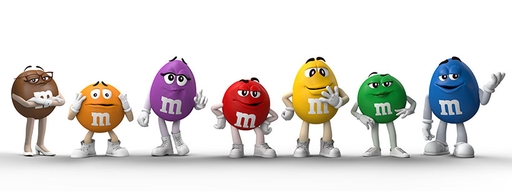According to the Worldometers website, there are 1 billion people in the world who are overweight. At least 300 million of them are considered clinically obese. That's 30%. When you say it as a percentage, it's not too bad, but 300 million people is a lot of people.
I believe advertising has played a factor in the rise of obesity, but I do not think it should be to blame. Advertising is simply that, advertising. Whether consumers believe it, buy into it, are affected by it, merely indicates that the advertisement accomplished its goal.
The job of an advertisement is to sell, to engage, to tell a story, to capture an audience. They make food look delicious, they make you crave these foods. If the foods being advertised are unhealthy, it's irrelevant. It doesn't matter if that burger is unhealthy for you, advertisements are made to convince you to buy it and eat it anyway.
 Advertisements do their job. Why can't people do their jobs? If you want to be healthy, why don't you eat healthy foods? Why do you give in to these temptations? Instead of blaming advertisements, the only people to blame are those who are feeding themselves (and their children, or whoever else they feed) these enticing, mouth-watering unhealthy foods.
Advertisements do their job. Why can't people do their jobs? If you want to be healthy, why don't you eat healthy foods? Why do you give in to these temptations? Instead of blaming advertisements, the only people to blame are those who are feeding themselves (and their children, or whoever else they feed) these enticing, mouth-watering unhealthy foods.
It all looks good, doesn't it? I think they look delicious! But everyone knows MacDonald's has a bad reputation for unhealthy food. Everyone knows fast food restaurants aren't the healthiest of options. However, these businesses are still flourishing. Everyone knows fast food isn't good for you, but they're still buying it.
 If people are still buying fast food and are still eating unhealthy foods, even with the knowledge of fast food restaurants and of certain unhealthy foods, advertising is irrelevant of these food choices. If advertising is irrelevant, advertising shouldn't be the blame for obesity levels rising.
If people are still buying fast food and are still eating unhealthy foods, even with the knowledge of fast food restaurants and of certain unhealthy foods, advertising is irrelevant of these food choices. If advertising is irrelevant, advertising shouldn't be the blame for obesity levels rising.Further, advertisements can't be to blame for childhood obesity either. Children's eating habits are influenced, if not controlled, by their parents and caregivers. If anyone is to be blamed for childhood obesity, it is those in charge of their food intake, which is most likely their parents.
Advertising gets a lot of criticism. It's really unfortunate because there are some really great and clever advertisements out in the world. A lot goes in to a well designed advertisement, but it isn't appreciated.
Instead of criticizing the works of others, everyone should look to themselves first before blaming others. The final decision comes down to the individual. They make the final decision, they execute the final action, they're in charge of their own lives.

